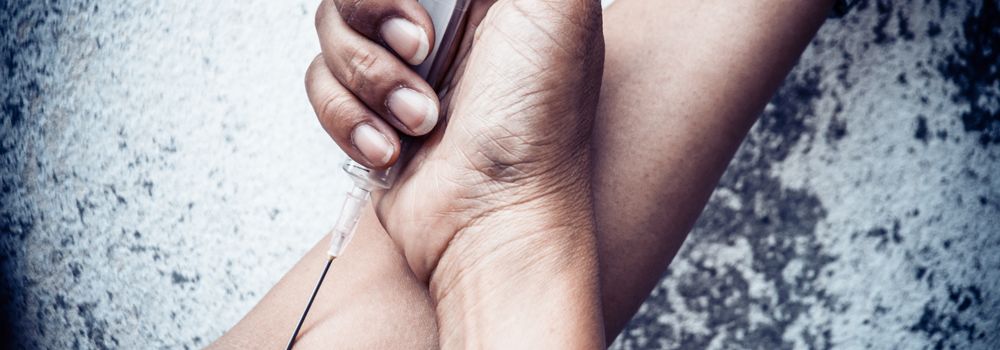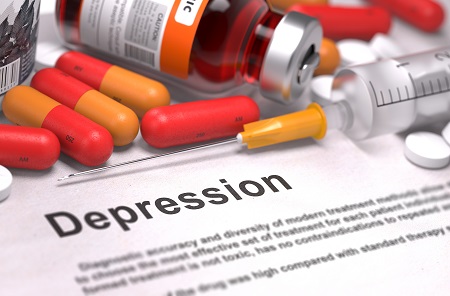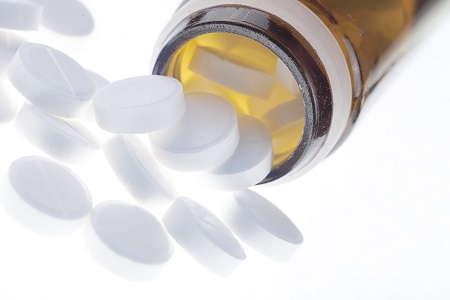Addiction Treatment Rehab
There are many available addiction treatment options, but what counts as the best choice will depend on your unique needs. Ultimately, what’s most important is that you get addiction treatment as soon as possible before any lasting damage is done.
Addiction is a common disorder, which if left unchecked can easily lead to debilitating consequences. Fortunately, addiction treatment is easily accessible in the UK, especially from private rehab facilities.
When trying to find the best available care for your addiction (or that of a loved one), certain questions need to be asked, such as: what type of drug rehab treatment is right for you? What will happen while you’re receiving treatment in a drug addiction rehab centre? With useful answers to these questions, you’ll have an easier time getting the professional addiction help you need.
Typically, addiction treatment should consist of medically assisted detox, followed by rehabilitation that addresses the addiction itself, as well as its underlying causes and any co-occurring disorders that may exist. Quality treatment centres have all the necessary resources and expertise to provide all of these and more. Rest assured that whilst in their care, they can help you make a safe and full recovery, as well as equip you with the tools to effectively manage and stave off any triggers and cravings.

Addiction Treatment and Rehab: What Is It?
Drug rehab (also known as rehabilitation) is the process of being treated for drug dependency through a system of therapies which help you regain control over your life. When you undergo rehab, the goal is to break free of your psychological need for drugs and learn how to avoid the temptation of substance abuse in future. Addiction treatment and rehab are typically not needed until your drug use has spiralled out of control and become compulsive, with side effects that negatively impact your wellbeing and that of your loved ones. If you or a loved one need help with any type of addiction, there are a number of private rehab centres across the UK that can help.
During rehabilitation, a combination of therapies will be applied to help achieve an abstinent lifestyle. The specific types of therapy will depend on the severity of your addiction and the level of care you need. Treatment will also include comprehensive medical and emotional care, as well as an understanding of the underlying causes of your addiction to prevent it from resurfacing in the future.
By having a better understanding of what you’re supposed to go through during the drug rehab process, you will be in a better position to choose the best approach for you or your loved one.
The Drug Rehabilitation Process

The drug rehabilitation process typically varies from one individual to another, based on a number of factors. This is because when it comes to effective drug rehabilitation, there’s no one-size-fits-all approach to the wide range of drug addictions or needs. In order to determine the most appropriate way to process your needs, you will first have to undertake an evaluation, which will be carried out by medical personnel and intake counsellors.
Generally, the drug rehabilitation process can be broken down into the following four stages:
- The assessment will define what you go through during the rest of your stay in rehab. This could be conducted by medical personnel, therapists, counsellors, and supporting staff; its results will be used to develop an individualised treatment plan for your particular addiction.
- Your actual individualised treatment will begin with detoxification, which involves ridding your body of all traces of the substance of abuse. You cannot undergo treatment without first going through detoxification. Because the detox process can be overwhelming (and possibly even dangerous), you will be monitored round-the-clock by medical personnel and provided nursing care in a private rehab.
- What follows is called rehabilitation. Rehab is more focused on your psychological recovery. It utilises a variety of therapies to identify the underlying factors that contributed to the development of your drug addiction.
- To help minimise this risk of relapse after treatment, aftercare is provided to reinforce all you’ve learnt in rehab. Aftercare is optional but h3ly recommended, so as to ensure the skills acquired during rehab become a part of your daily routine.
Importance of Addiction Treatment
The importance of addiction treatment cannot be overemphasised, because for every day an addiction goes untreated, it’s subsequently given an opportunity to lay down h3er roots and cause even bigger problems.
In order to be wholly effective, drug and alcohol addiction treatment should take a holistic approach to ensure your recovery. This can be achieved by focusing on not just your behaviour, but also any ancillary problems contributing to your addiction. Also, therapies should equip you with the skills to become self-reliant, as well as productive, giving a new focus and a reason to remain abstinent.
Drug and alcohol addiction treatments vary from one rehab centre to the next; generally, each rehab facility makes use of behavioural and pharmacological treatment methods to help recovering addicts. Behavioural treatment typically consists of counselling and therapy and can be delivered on an inpatient or outpatient basis, although certain treatment models combine both.
Making the decision to abandon your dependency is just the first step towards recovery. Your sheer willpower and wish to attain sobriety will not be enough. Your recovery will need to be supported by medical and psychological care, as well as maintained by a support network. We can provide all this and more to ensure your lasting sobriety and healthy living.
Effective Treatment for Addiction
While addiction might be a devastating and complex disease that affects brain function and your behaviour in general, it is treatable. In many cases, its long-term effects are even reversible, as long as you seek treatment as soon as you notice losing control.
Treatment will vary from person to person, depending on unique physiology and psychology, type of drug(s) being abused, and

other factors. In order to determine the most suitable intervention strategy, treatment settings and services to ensure recovery, a thorough evaluation is necessary. Furthermore, because not every addict is always 100% willing to accept treatment, it’s crucial that access to treatment is readily available at all times. Adequate availability and accessibility mean an addict can be admitted for treatment before they have an opportunity to change their mind.
Effective addiction treatment will take a holistic approach. That is, instead of focusing on just the addiction itself, treatment will take into consideration the underlying causes of addiction as well as other contributing factors. Said factors could be medical, psychological, legal, social, or vocational in nature. By addressing these, treatment is more likely to yield effective and lasting results.
Aside from the actual therapies used during addiction treatment, its duration will also play a key role in its effectiveness. For instance, people with less intense addictions will require rehab for a shorter period of time than those with more severe addictions. Being discharged from rehab too soon will likely only lead to relapse.
The appropriate duration of rehab treatment will depend largely on the patient’s problems and needs. Those with severe addictions may need to stay in rehab for as long as three months or more. The longer a recovering addict stays in rehab, the better the results usually are. Recovery is a long-term process that continues even after you’re discharged from rehab. Relapse does occur, but not for everyone; even when it does, you can still get back on your feet with a proper adjustment of your treatment.
Effective addiction treatment typically consists of the following:
- Behavioural therapies: can be combined with family, individual or group counselling for effective addiction treatment results. There are various forms that typically vary in focus. Some are focused on providing incentives for abstinence, while others address a patient’s motivation to change. There are also those that focus on helping build skills to resist drug use or replace activities which an addict may easily connect with alcohol or drug use.
- Medications: can play a key role in facilitating recovery. Some are especially effective if combined with counselling and behavioural therapies. Medications such as buprenorphine, methadone, and naltrexone have for years been used to effectively treat alcohol, heroin and other opioid addictions by minimising their withdrawal symptoms and stabilising them.
- Medically assisted detoxification: provided during the initial stages of addiction recovery. However, detoxification on its own is not sufficient as addiction treatment. For comprehensive recovery, both rehabilitation and aftercare are necessary.
Also, bear in mind that treatment does not have to be voluntary. Some can no longer decide what’s best for themselves or those around them, which is why sanctions enforced by the court (or enticements from loved ones) can be employed to manipulate or coerce them into rehab. If an addict isn’t personally committed to getting better, treatment can still be effective, but the journey will be more difficult.
Supervision and monitoring are also key to ensure a successful treatment. Just knowing that they are being watched whilst in rehab can be enough of an incentive for a recovering addict not to slip and relapse. Also, monitoring will let those in charge of treatment know whether a recovering addict has relapsed and therefore take appropriate action as soon as possible to help them get back on track.
Asides from assessing patients for any co-occurring disorders that could impede recovery, patients should also be tested for HIV/AIDS, tuberculosis, Hepatitis B and C, as well as any other infectious diseases that they may have contracted whilst abusing drugs. Treatment should be tailored to suit the unique traits of each patient by taking into consideration age, sex and if necessary, ethnicity.
Call our admissions line 24 hours a day to get help.
Inpatient and Outpatient Treatment and Rehab for Addiction
Addiction treatment can be generally divided into two types: inpatient or outpatient programmes. Making the decision whether inpatient or outpatient rehab is best for you isn’t a decision that should be made lightly or without sufficient information. Even though both types are effective and bring their own unique benefits, each is better suited for a specific type of addiction and recovery.
Inpatient rehab provides intensive treatment programmes in a residential facility, which is ideal for any type of addiction. You’ll stay in the facility for the entire duration of treatment. This type of treatment has a higher success rate but is also more expensive. You’ll be provided round-the-clock medical and emotional support every day. The stay can last for anywhere between 28 days and six months. Most importantly, there will be no distractions, which this gives you a wonderful opportunity to focus solely on your recovery.
Outpatient treatment, you’ll get to come from home to receive treatment. This gives you the opportunity to carry on with your regular day-to-day business and obligations. It’s also more affordable and allows for easier access to social circle support. The programme can last for anywhere between three months and over a year and is sufficient for those with a mild addiction. However, outpatient programmes have a lower success rate when compared to inpatient treatment.
Both inpatient and outpatient programmes are capable of helping you make a full recovery, but the severity of addiction and your unique needs are what will ultimately determine which is the right choice for you.
Finding an Addiction Rehab Programme that works
When trying to decide which rehab programme will best care for your needs, it’s important to carefully take into consideration the following factors:
Types of addictions the facility specialises in treating: Different addiction rehab centres treat the specific types of addiction in which they specialise. Some specialise in behavioural addictions, while others specialise in alcohol or drug addictions. In order to get the level of care you need, it’s best to opt for a clinic with years of experience successfully caring for your unique type of addiction.
Type of accommodation provided Being treated at a residential private rehab centre will require you to stay in that facility for the entire duration of treatment. If you’re not comfortable or satisfied with the accommodation, this in itself can be a stressor that distracts you from recovery. A number of private facilities offer basic comfort and a serene environment. However, if you desire extra comfort, you can opt for a luxury inpatient facility that provides services such as spa, acupuncture, gourmet meals, and more. However, the more luxurious a private rehab centre is, the higher the price.
Location You might prefer a rehab clinic that’s near to home, so you can be close to your family – or one that’s far away for your own personal reasons. Either way, the location of the rehab centre should be taken into consideration; for instance, is it easily accessible and at your convenience? Or do you need time away from the usual temptations?
Is the treatment programme designed for your preferences or unique needs? Some addiction programmes are generic, while others are designed for certain categories of people. For instance, there are addiction programmes designed specifically to care for the needs of adolescents, the LGBT community, women, high-level executives, and so on. By receiving treatment at a centre that caters to your particular demographic, your convenience, comfort and recovery can all be guaranteed.
Types of treatment provided The majority of inpatient facilities offer individual as well as group therapy and counselling. You should opt for a facility that can offer detox and rehab in the same location, as well as any medical assistance you might need to treat a co-occurring disorder. Also, if you want family members at your side, you can choose a facility that provides family therapy sessions
Cost of the programme The cost of rehab will differ, based on factors such as the severity of your addiction, duration of treatment and so on. It’s best to opt for an addiction treatment centre whose services you can easily afford. To minimise costs, you can also choose a rehab that accepts health insurance as a way of payment. In the event that you simply can’t afford private rehab, you could explore the option of sourcing treatment via the NHS.
Is staying away from work an option? If you have a business to run or office obligations you can’t leave unattended, you’ll be better off opting for an executive rehab programme which offers quality inpatient care that will still allow you to engage in your regular work commitments.
Before you make a final decision, be sure to shop around and take into consideration each of the above factors. A programme that’s right for another individual with an addiction similar to yours might still not be right for you, so be sure to look closely.
What to Know about Addiction Treatment Clinics?
Going to rehab and receiving treatment for an addiction might seem like a difficult journey, but it is well worth it in the end. If you need help with substance abuse, private rehab is the best way to go.
It’s safer not to try and beat addiction on your own; with professional help, your chances of making a full recovery – without any long-term complications – are much higher. Professional help will also make the difference between not only achieving abstinence but staying abstinent.
During treatment at a good rehab clinic, you will be healed mentally, physically, and spiritually. You’ll also be equipped with the necessary tools to avoid a relapse and attain a substance-free life. Treatment will be tailored to suit your unique needs and ensure no aspects of your addiction are left untreated. However, this can only be implemented after you’ve undergone an evaluation, as it’s the results of this evaluation that will be used to personalise your treatment. Therefore, it’s important to answer all questions during the evaluation phase, both honestly and comprehensively. False answers can lead to flaws in your treatment plan that could delay or complicate your recovery.
Treatment in a rehab clinic will typically consist of detox, individual and group therapy, and/or alternative therapies if deemed necessary. Upon completion, remember that your recovery is a continuous process and you can stay on the right path by engaging in aftercare. For many recovering addicts, aftercare has made the difference between relapsing and remaining abstinent.
Addiction Treatment Durations Explored

Depending on your preferences or needs, you shouldn’t have any trouble finding treatment with longer or shorter stays – whether as an outpatient or inpatient. The duration of rehab treatment is generally found to be 28-30 days, 60 days or 90 days. There are also long-term recovery programmes of 90-120 days and beyond for extremely severe cases.
According to NIDA (National Institute on
Drug Abuse), a residential or outpatient treatment that lasts for 90 days or longer is more likely to be successful. An evaluation carried out by an addiction treatment specialist will provide an accurate guidepost for your desired length of treatment. However, treatment of any duration is a positive step in the right direction.
Risks of Addiction Treatment
The greatest danger any recovering addict faces is that of a relapse. Whilst in recovery, an addict will be plagued with thoughts of using their substance of abuse. It’s a battle that most addicts fight for the rest of their lives; it takes just a single slip up to relapse into old ways and destroy all the progress achieved through treatment. When a recovering addict experiences a relapse, there’s a possibility that they may not get another opportunity to quit.
It’s generally believed that relapse has a higher likelihood of occurring within the first 90 days of recovery. However, within the first five years of attaining abstinence, the risk is still high. Also, one of the greatest dangers of suffering a relapse is the fact that it can easily lead to a fatal overdose, as the addict’s body is no longer used to the abusive substance.
More than half the people who undergo addiction treatment eventually return to compulsive drug use within 12 months of quitting. Relapse prevention can minimise this risk. Normally, indicators manifest before a relapse. Some of these include stress, depression, life pressures, abusing other substances, or simply frustration. Being able to identify these symptoms in time will make it easier to avert a possible relapse.
Paying for Addiction Treatment
Addiction treatment in a private rehab centre can be quite pricey, but the cost is generally worth the reward. Costs will vary from one rehab centre to the next, so it’s best to look around and talk to the intake personnel, so as to have an idea of what treatment you’ll receive and how much it will cost.
Rehab treatment can be paid by cheque, cash, or with credit cards, depending on the treatment facility. Some rehab centres accept health insurance, while others only partly accept health insurance to pay for some costs. Inpatient rehabilitation typically costs more than outpatient programmes, because of meals, accommodation, and so on.
If you can’t afford to personally finance treatment in a private rehab centre, you can always explore the option of seeking treatment via the NHS.
Call our admissions line 24 hours a day to get help.
What to Expect during Addiction Treatment and Rehab?
After the admission is complete will involve medical testing, psychological analysis, and the completion of some paperwork. Once complete, you’ll be introduced to the schedule of the detox programme, which will be structured in a manner that ensures you receive optimal care but aren’t unduly stressed.
During your stay in the addiction treatment centre, you’ll also undergo rehabilitation, comprising exercises, education, counselling, behaviour modification therapy, and more. You’ll also be taught how to deal with your compulsive drug use and be provided with the necessary tools to overcome cravings.
Aftercare is also provided by the higher-quality rehab clinics; it involves counselling and therapy after your stay has been completed.
Post-Rehabilitation and Treatment Support
Upon completion of treatment, you can choose to continue receiving care from home via an aftercare counselling and therapy service. Aftercare is optional, but recovering addicts who take advantage of it have a higher chance of achieving lasting recovery.
Aftercare is designed to reinforce what’s been learnt whilst in rehab and provide ongoing support. Remember that the sooner you get professional help for your addiction, the better.
The Risk of Relapse for Recovering Addicts
Addiction recovery isn’t always a smooth trip, as relapse does happen and the causes can be varied. When an addict experiences a relapse, they may feel a sense of failure and this will only cause them to sink further back into addiction.
It can take multiple attempts to achieve lasting recovery, but what’s important is never to give up, no matter how many times you relapse. Aftercare can help you stay focused on achieving lasting abstinence after you’re discharged from rehab.
FAQs
How long does inpatient addiction treatment take?
The duration of inpatient care will vary. Depending on the severity of the addiction, treatment could go on for 28-30 days, 60 days, or even 90 days. Treatment might last for 90-120 days and beyond in extremely severe cases.
Is it possible to avoid treatment and rehab whilst battling addiction?
Professional treatment is key to recovering safely and completely from addiction. Overcoming addiction is impossible without undergoing detoxification; going through this process without medical assistance is deemed unsafe. You’ll also need rehabilitation to treat the psychological aspects of your addiction and provide the tools to achieve lasting abstinence.
What is the right addiction treatment programme for me?
The best addiction treatment programme to help you achieve lasting abstinence will be determined by a number of factors – especially the severity of your addiction. If your addiction is considered severe, then you’re likely better off getting off being treated in an inpatient rehab centre. However, if your addiction isn’t that severe, an outpatient treatment programme should suffice. To discover exactly what treatment programme is right for you, you’ll need to go through an evaluation process that takes into consideration every aspect of your addiction.
What are some common addiction withdrawal symptoms?
The withdrawal symptoms experienced after quitting a substance of abuse will typically be dependent on what substances you were abusing and the extent of the abuse. Generally, though, you may experience the following withdrawal symptoms: nausea, fever, diarrhoea, aches, intense cravings, anxiety, and depression.
What happens during treatment?
Addiction treatment will vary from person to person; however, you can generally expect to go through a detoxification process to help rid your body of the substance of abuse. This is followed by rehabilitation which addresses the psychological aspects of your addiction. Once rehabilitation is complete, you can be discharged, but it’s recommended you keep receiving ongoing support via aftercare services.
What types of treatment are available?
Generally, you can receive addiction treatment either via an outpatient or inpatient programme. You can also go through a combination of both for optimal effect. A variety of therapies (such as behavioural therapies, counselling, and support) will be applied to guide you towards long-term wellbeing.

